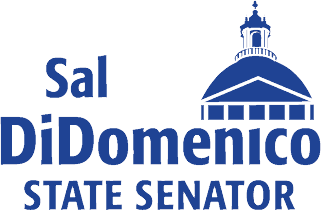BOSTON – On October 8, 2020, Senator Sal DiDomenico joined Clean Water Action’s 26th Fall Celebration, an annual event to celebrate the successes from the year and honor champions of clean water, clean air, and healthy communities. During the virtual event, Senator DiDomenico was presented with the “Legislative Champion Award” for his work on Environmental Justice (EJ) legislation to eliminate disparities with respect to exposure to environmental toxins.
“It was an honor to presented with the Legislative Champion Award, alongside my partners Representative Liz Miranda, Representative Adrian Madaro, and Representative Michelle DuBois, for our collective work on environmental justice legislation,” said Senator DiDomenico. “This legislation is so important for our communities, and it is even more critical in light of the COVID-19 pandemic. I am always proud to work with my legislative partners to advocate for justice for our constituents, and I am deeply grateful to Clean Water Action for their unwavering support and work on environmental justice.”
Senator DiDomenico is a lead sponsor of the Environmental Justice Act, which seeks to address the unfair share of environmental pollution faced by a handful of communities by defining disproportionate environmental burdens as injustices and the individuals affected by them as Environmental Justice populations. It further aims to facilitate a more equitable distribution of energy and environmental benefits and burdens throughout the Commonwealth via the expansion of environmental impact reviews, including evaluations by the Massachusetts Environmental Justice Advisory Council, which will have direct representation from EJ populations.
For decades, low-income communities & communities of color in the Commonwealth have borne the brunt of the state’s energy choices and have been left out of key decision-making processes. Consequences of these realities have resulted in a disproportionately high rate of COVID infections throughout EJ communities, as represented by data from the MA Dept. of Public health, and related CRESSH study. The CRESSH study, which has modeled COVID infection rates in towns throughout the Commonwealth, indicated during the height of summer infections that EJ communities like Chelsea and Everett faced 2955 and 1770 COVID cases, respectfully, while more affluent communities faced nearly a quarter of these outbreaks.
“Time and again, cities like Chelsea and Everett have been disproportionately impacted by our long history of short-sighted environmental policies and have taken on this toxic burden for our entire region. It should come as no surprise then that this history has had severe consequences for our health, and EJ cities like those in my district are now the communities most impacted by the COVID-19 virus,” said Senator DiDomenico. “It has never been clearer that we need to pass the Environmental Justice Act this legislative session. Our residents cannot wait for us to take action any longer.”
The Environmental Justice Act received a favorable report out of the Joint Committee on Environmental, Natural Resources and Agriculture in December of 2019, and is currently pending before the Senate Committee on Ways & Means. Language from the Environmental Justice Act was also included in the House Climate Change bill, which is currently pending before conference committee.
###
